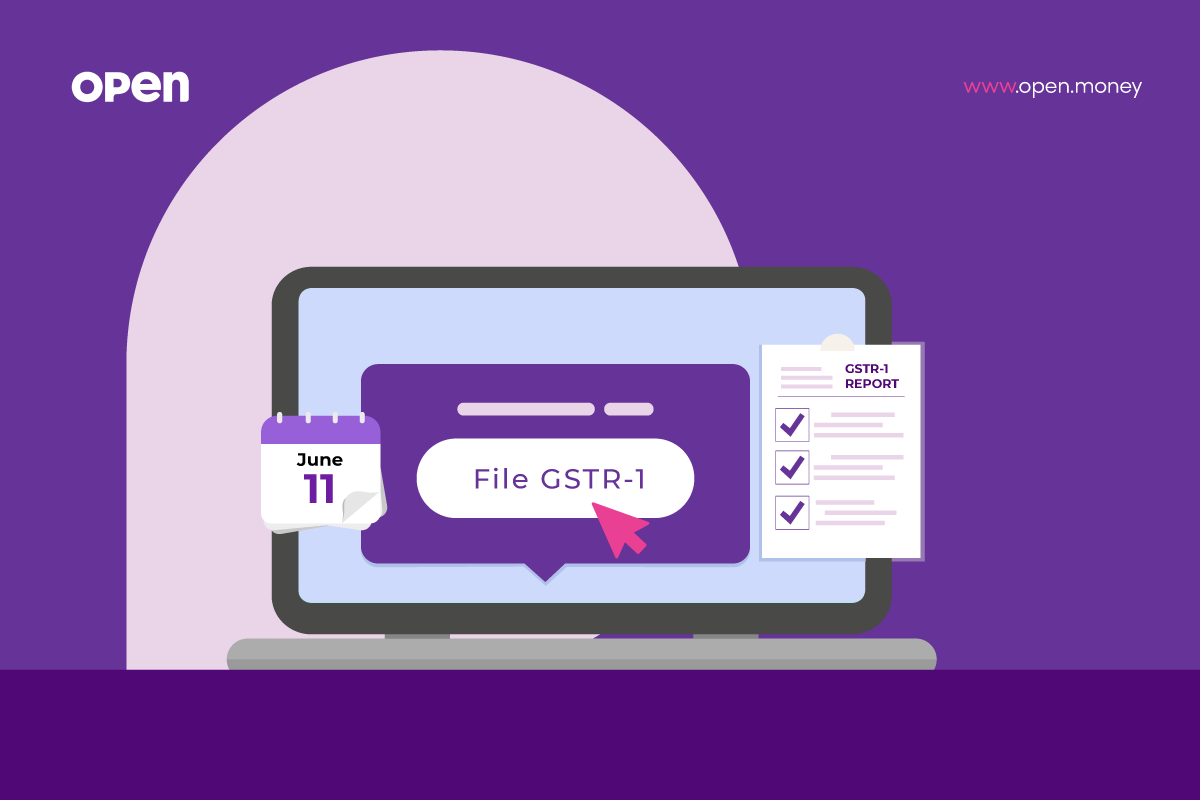When it comes to doing business in India, understanding the income tax rate for companies is crucial—be you a domestic enterprise or a foreign entity operating in the country. Whether you’re a startup founder, a seasoned business owner, or simply curious about how companies are taxed, this blog breaks down the essentials of Corporate Tax in India
How to Calculate Company Income Tax
Calculating company income tax involves determining your net profits after allowable expenses and deductions, applying the appropriate tax rate, and adding any surcharges and cess.
Company Income Tax Calculator
Calculate the estimated income tax for domestic or foreign companies under Indian tax laws.
Enter your taxable income (before deductions) and the total deduction amount, then select the applicable tax rate based on your turnover or special section eligibility. The calculator will instantly compute your estimated tax liability, including surcharges and cess. It is updated for FY 2024-25 (with returns due by October 31st, 2025, or the latest announced date) and FY 2025-26 as per Budget 2025.
What Is Corporate Tax/Company Income Tax?
Corporate Tax/Company income tax is levied on a company’s net profits after deducting allowable expenses and exemptions. In India, the tax framework distinguishes between:
- Domestic companies: Registered and operating primarily within India.
- Foreign companies: Based outside India but conducting business in India.
Each category is subject to different tax rates and regulatory requirements.
Domestic vs. Foreign Companies: Key Differences
Domestic Companies
Domestic companies are those registered and operating primarily within India. Their tax liability depends on factors like annual turnover, business nature, and eligibility under specific sections of the Income Tax Act.
Income tax rates for domestic companies
The income tax rate for domestic companies in India is 30%.
Income tax rate based on turnover
- 25% tax rate: For companies with a turnover (or gross receipts) of up to ₹400 crore in the previous financial year.
- 30% tax rate: Applies to all other domestic companies not covered under concessional sections.
Income tax rates under specific sections
Certain domestic businesses can benefit from reduced tax rates if they opt to forgo various deductions and exemptions. These provisions are designed to encourage efficiency and boost manufacturing investments:
- Section 115BA – 25%
Applicable to certain manufacturing companies incorporated after March 1, 2016, that do not claim deductions under Chapter VI-A, investment-linked deductions, or incentives for SEZs.
- Section 115BAA – 22%
Available to all domestic companies, regardless of their industry or incorporation date, provided they give up certain deductions and exemptions like depreciation benefits, MAT credit, and incentives.
- Section 115BAB – 15%
Available for new manufacturing companies established on or after October 1, 2019, that commence operations before March 31, 2024, and do not claim tax exemptions.
Tax Benefits on Investments/payments/incomes for domestic companies
Domestic companies can leverage several sections of the Income Tax Act to reduce their taxable income (subject to conditions):
- Section 80G: Deduction for donations made to prescribed funds and charitable institutions.
- Section 80GGA: Deduction for donations made for scientific research or rural development.
- Section 80GGB: Deduction for contributions to political parties or electoral trusts.
- Section 80IA: Deduction for undertakings engaged in developing, maintaining, and operating infrastructure facilities.
- Section 80IAB: Deduction for undertakings engaged in the development of Special Economic Zones (SEZs).
- Section 80IAC: Deduction for eligible start-ups deriving profits from specified businesses.
- Section 80IB: Deduction for profits from specified industrial undertakings (other than infrastructure projects).
- Section 80IBA: Deduction for profits derived from developing and building housing projects.
- Section 80IC: Deduction for certain undertakings in Himachal Pradesh, Sikkim, Uttaranchal, and the North-Eastern states.
- Section 80IE: Deduction for certain undertakings set up in North-Eastern states.
- Section 80JJA: Deduction for profits from the business of collecting and processing biodegradable waste.
- Section 80JJAA: Deduction for employment of new workers, applicable to assessees required to get their accounts audited.
- Section 80LA: Deduction for income of Offshore Banking Units and International Financial Services Centres (subject to conditions).
- Section 80M: Deduction for inter-corporate dividends if distributed to shareholders.
- Section 80PA: Deduction for producer companies engaged in the marketing, purchase, or processing of agricultural produce from their members.
Foreign Companies
Foreign companies are entities registered outside of India but that conduct significant business operations within the country. These can include multinational corporations, foreign subsidiaries, or branch offices, each adapting their global strategies to the local market
Income tax rates for foreign companies
Foreign companies operating in India generally have a higher tax rate than domestic businesses:
- 40% standard tax: This is the base tax rate applicable to foreign companies.
- 50% tax rate: Applies to foreign companies earning royalties or fees for technical services under certain agreements with the Indian government.
Tax benefits on investments/payments/incomes for foreign companies
While the scope of deductions for foreign companies is generally more limited than that for domestic companies, foreign entities operating in India can still leverage several specific sections of the Income Tax Act to reduce their taxable income, subject to conditions.
- Section 80G: Deduction for donations to prescribed funds and charitable institutions.
- Section 80GGA: Deduction for donations made for scientific research or rural development.
- Section 80GGC: Deduction for contributions to political parties or electoral trusts.
- Section 80IAB: Deduction for undertakings engaged in the development of Special Economic Zones.
- Section 80IE: Deduction for undertakings established in North-Eastern states.
- Section 80JJAA: Deduction for the employment of new workers, applicable to assessees with mandatory audit requirements.
- Section 80LA: Deduction for income of Offshore Banking Units and International Financial Services Centres.
Additionally, Double Taxation Avoidance Agreements (DTAA) can help reduce the effective tax rate for foreign companies by preventing the same income from being taxed in both India and the home country.
Additional Charges: Surcharges and Cess
Beyond the basic company income tax, businesses are also liable for additional charges.
Surcharge on Income Tax
A surcharge is an extra levy applied on the computed income tax, varying with taxable income levels:
For Domestic Companies
- 7% Surcharge: For taxable income exceeding ₹1 crore but up to ₹10 crore.
- 12% Surcharge: For taxable income exceeding ₹10 crore.
- 10% Surcharge: For companies opting for lower tax rates under Sections 115BAA and 115BAB.
For Foreign Companies
- 2% Surcharge: For taxable income between ₹1 crore and ₹10 crore.
- 5% Surcharge: For taxable income exceeding ₹10 crore.
Health & Education Cess
A 4% Health & Education Cess is applied to the total tax payable, including the surcharge. This cess contributes to social welfare programs in education and healthcare.
Corporate Tax For Domestic Companies
| Category / Section | Tax Rate (%) | Surcharge |
| Turnover-Based Rates | ||
| Turnover up to ₹400 crore | 25% | 7% (if taxable income between ₹1 Cr and ₹10 Cr)
12% (if >₹10 Cr) |
| Turnover above ₹400 crore | 30% | 7% (if taxable income between ₹1 Cr and ₹10 Cr)
12% (if >₹10 Cr) |
| Specific Provisions | ||
| Section 115BA | 25% | 7% (if taxable income between ₹1 Cr and ₹10 Cr)
12% (if >₹10 Cr) |
| Section 115BAA | 22% | 10% surcharge applicable |
| Section 115BAB | 15% | 10% surcharge applicable |
Corporate Tax For Foreign Companies
| Category / Type | Tax Rate (%) | Surcharge |
| Standard Tax | 40% | 2% (if taxable income between ₹1 Cr and ₹10 Cr)
5% (if >₹10 Cr) |
| Technical Services / Royalty Income | 50% | 2% (if taxable income between ₹1 Cr and ₹10 Cr)
5% (if >₹10 Cr) |
Note: A 4% Health & Education Cess is applied to the total tax payable (including surcharges) for all companies.
Corporate income tax in India is not one-size-fits-all. Different tax rates apply depending on a company’s turnover, business type, and eligibility for specific sections of the Income Tax Act. Companies must carefully assess their financial structure, long-term growth plans, and eligibility before opting for concessional tax rates. By staying informed and consulting experts, businesses can optimize tax planning and boost profitability.
Disclaimer: This blog is intended for informational purposes only and should not be considered as professional tax advice. Always consult with a tax professional for advice tailored to your specific circumstances.





